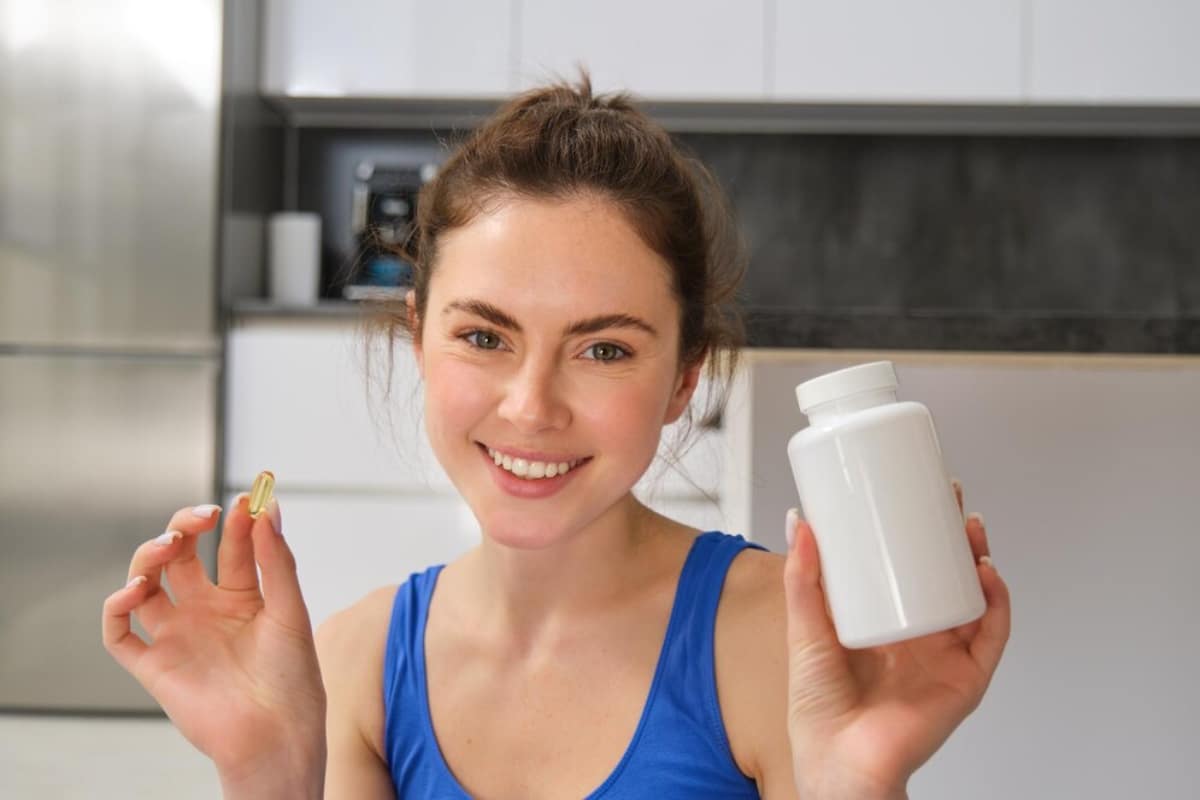
Top Vitamins and Supplements for Puberty Support
Fuel for a Growing Body
Puberty is more than a phase. It’s a time of rapid growth, emotional ups and downs, and changing identity. As kids become teens, their bodies need more than sleep and well-fitting uniforms. They need the right nutrients to support healthy development from the inside out.
But even with a balanced diet, it’s not always easy to meet all their nutritional needs. Busy schedules, picky eating, changing appetites, and increased energy demands can leave teens with gaps in their diet. That’s where vitamins and supplements can offer a little extra support — not as a replacement for food, but as a safety net.
This guide will cover the best vitamins for teens. We’ll also look at key supplements that support puberty. Plus, we’ll explain how to choose safe and effective options for your child. You’re facing growth spurts, hormonal changes, or fatigue. Here, you’ll find science-based tips to keep development on track.
Why Teens May Need Supplement Support During Puberty

The Nutritional Demands of Puberty
Puberty brings about rapid physical, hormonal, and cognitive development.
- More calories to support growth and energy
- More vitamins and minerals to build bone, muscle, and brain function
- Extra iron and calcium to support menstruation and skeletal growth
The British Nutrition Foundation says many teens, especially girls, don’t get enough key nutrients.
- Iron
- Calcium
- Vitamin D
- Folate
- Zinc
Whole foods should be the first choice, but supplements can help fill gaps and support healthy puberty.
Common Reasons for Nutrient Gaps in Teens
- Fussy eating or restrictive food habits
- Busy schedules that lead to skipped meals or quick, processed snacks
- Dietary restrictions, including vegetarian or vegan choices
- Increased needs due to sports, growth spurts, or early puberty
Supplements shouldn’t be pushed unnecessarily, but they can be a valuable tool when used thoughtfully.
Essential Vitamins and Minerals for Puberty Growth Support
1. Vitamin D: The Sunshine Vitamin
Why it matters: Supports bone development, immune function, and mood regulation.
Teen bones grow quickly. Vitamin D is key because it helps absorb calcium. This is vital to prevent deficiencies that can weaken bones and stunt growth.
Sources:
- Sunlight (the UK sun is too weak from October to March)
- Fortified cereals and dairy
- Fatty fish (e.g. salmon, mackerel)
Recommended intake:
- 10 micrograms per day (via supplement in autumn/winter)
NHS guidance recommends all children over 1 year take a daily 10mcg vitamin D supplement, especially in colder months.
2. Calcium: The Bone Builder
Why it matters: Essential for peak bone mass development during adolescence.
Up to 90% of adult bone mass forms by the end of the teenage years. This makes getting enough calcium during puberty vital for long-term bone health.
Sources:
- Dairy (milk, cheese, yoghurt)
- Fortified plant milks
- Leafy greens (e.g. kale, broccoli)
- Tinned fish with bones
Recommended intake:
- 800–1000mg/day for teens aged 11–18
Calcium supplements are especially helpful for lactose-intolerant teens or those who avoid dairy.
3. Iron: For Energy and Menstruation
Why it matters: Iron is crucial for oxygen transport, brain function, and stamina.
Girls lose iron each month when they menstruate.Growing boys need iron, too, for muscle development.
Signs of deficiency:
- Fatigue
- Pale skin
- Difficulty concentrating
- Frequent colds or infections
Sources:
- Red meat and poultry
- Lentils and beans
- Spinach and fortified cereals
Recommended intake:
- Girls (11–18): 14.8mg/day
- Boys (11–18): 11.3mg/day
Consider a supplement if your child shows signs of anaemia or follows a low-iron diet.
4. Zinc: For Skin, Hormones and Immunity
Why it matters: Zinc is key for wound healing, immune defence, and hormone balance. These are all crucial during puberty.
It also plays a role in acne control and reproductive health.
Sources:
- Meat and shellfish
- Whole grains
- Nuts and seeds
Recommended intake:
- Boys (11–14): 9mg/day
- Girls (11–14): 7mg/day
Zinc is often found in multivitamins. It helps teens who get colds or have breakouts often.
5. B Vitamins: For Energy and Brain Support
Why they matter: B vitamins help with metabolism, energy production, and a healthy nervous system.
Key B vitamins for teens include:
- B6: Helps with brain development and mood regulation
- B12: Supports red blood cell formation and concentration
- Folate (B9): Important for tissue growth and hormone production
Sources:
- Whole grains
- Eggs
- Leafy greens
- Fortified cereals
Most multivitamins include B-complex nutrients, making them a good backup for fussy eaters.
6. Omega-3 Fatty Acids: Brain and Mood Boosters
Why they matter: Omega-3s, especially DHA and EPA, help brain health. They also boost focus and stabilise mood. This support is key during the emotional ups and downs of puberty.
Sources:
- Oily fish (e.g. salmon, sardines, mackerel)
- Flaxseeds, chia seeds, walnuts (ALA)
- Fish oil or algae-based omega-3 supplements
Teens who don’t eat fish at least twice a week may benefit from a supplement.
Choosing the Right Puberty Supplements

Multivitamins: One Daily Dose of Support
Multivitamins are a simple way to cover multiple bases, especially if your child:
- Skips meals
- Has dietary restrictions
- Eats very selectively
What to look for:
- Age-appropriate dosing (not adult formulas)
- No excessive levels (avoid megadoses unless medically prescribed)
- Brands that are third-party tested for quality and purity
Avoid sugary, artificial gummy vitamins if possible — or opt for sugar-free versions.
Standalone Supplements: When Targeted Help Is Needed
These can be useful if your teen:
- Has a diagnosed deficiency (e.g. iron or Vitamin D)
- Follows a specific lifestyle (e.g. vegan, dairy-free)
- Needs extra support for skin, energy, or focus
Always check with your GP or a registered dietitian before using high-dose supplements.
Avoiding Supplement Pitfalls
Be mindful of:
- Unproven “hormone boosters” or “growth enhancers” marketed to insecure teens — many are ineffective or unsafe.
- Too many overlapping products can lead to excessive intake of fat-soluble vitamins like A, D, E, and K.
- Supplements replacing meals — they’re not substitutes for balanced eating.
Helping Teens Build Healthy Habits Around Supplements
Involve Them in the Process
Let your teen:
- Choose the form they prefer (gummies, capsules, liquids)
- Set reminders to take them daily
- Learn what each vitamin does for the body
This turns supplement-taking into self-care, not a chore.
Tie It to Other Routines
Link supplements to a consistent habit, like:
- Brushing teeth
- Eating breakfast
- Packing their school bag
Small cues reduce forgetfulness.
Combine with Whole Foods Education
Teach them that supplements are helpers, not solutions. Reinforce the idea that whole foods are the best fuel, and supplements simply “top up” where needed.
Real-Life Scenarios: How Supplements Help
Case 1: A 12-Year-Old Vegetarian Girl Starts Her Period
- Struggles with fatigue and a pale complexion
- Not a fan of iron-rich foods
- Add-on: Iron + Vitamin C supplement, paired with B12 and calcium from fortified plant-based milks
Case 2: A 14-Year-Old Boy Hitting a Growth Spurt
- Complaints of joint aches and mood swings
- Eats well but forgets to hydrate and is low in energy
- Add-on: Omega-3 for focus, Vitamin D in winter, magnesium for muscle cramps
Case 3: A Fussy Eater on Processed Foods
- Often skips breakfast, hates veggies
- Skin breakouts and low immune resistance
- Add-on: Teen multivitamin + zinc support, plus parental focus on meal routines
Conclusion: Supporting Growth with Knowledge and Kindness

Puberty is a time of transformation, and no two kids go through it the same way. Food is the main source of nourishment. However, supplements can also help support your child during adolescence.
You’re also boosting their overall well-being by picking safe products that suit their age, focusing on important nutrients, and getting your teen involved. You’re also helping them take charge of their well-being—one step, shake, or chewable tablet at a time.
Have you tried supplements to support your child’s growth or mood swings during puberty? Please share your experiences or questions in the comments. Your story might help another parent support their teen better.


